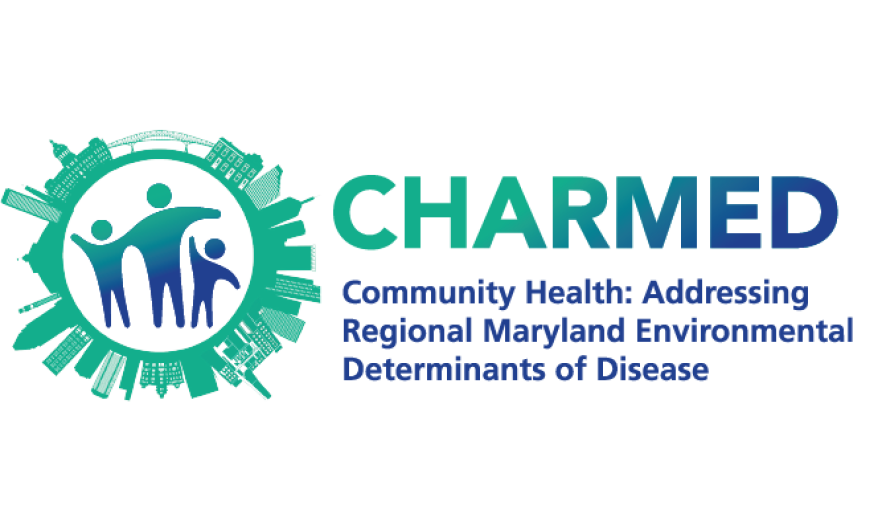JHU Team Announces New Community-Engaged Research Center (CHARMED)
Researchers at the Johns Hopkins Bloomberg School of Public Health have been awarded a $5.6 million Community Health Engagement Core Center grant from the National Institute of Environmental Health Sciences.

Researchers at the Johns Hopkins Bloomberg School of Public Health have been awarded a $5.6 million Community Health Engagement Core Center grant from the National Institute of Environmental Health Sciences.
The Center will lead an effort to build capacity in community-engaged research aimed at understanding the mechanistic links between environmental exposures and adverse health outcomes and translate these findings into action to improve the health of vulnerable individuals in communities across the greater Maryland region.
The project will build partnerships between communities in the region – Baltimore, Washington, D.C., and some areas of Pennsylvania – to address their environmental concerns. The Center will provide training, support, and access to environmental health experts to facilitate the creation of lasting community-investigator partnerships aimed at tackling the pressing environmental concerns of our communities.
The CHARMED Center is based in the Department of Environmental Health and Engineering (EHE), which spans the Bloomberg School and the Whiting School of Engineering. It is one of 12 NIEHS P30 Center awards given nationally.
Marsha Wills-Karp, PhD, the Anna M. Baetjer Professor and Chair of EHE, is the principal investigator of the NIEHS P30 Core Center Award.
“We hope through creating the infrastructure for community partners and investigators to work together, we will be able to address environmental concerns of the communities in the region and to translate them into knowledge and actions to improve the health and well-being of affected individuals,” says Wills-Karp.
The Center will focus on four major thematic areas: cardiorespiratory health and airborne contaminants; chemical mixtures and emerging contaminants, and health; community, social, and environmental determinants of health; and neurological health.
The Center houses several facility cores that will provide the scientific expertise and support required for conducting community-engaged environmental health research. The cores include:
The Community Engagement Core (CEC) is co-led by Chris Heaney, PhD, Associate Professor in EHE and Sacoby Wilson, PhD at the University of Maryland. They will serve as a bridge between greater Baltimore communities and JHU/UMD investigators (CEC) and provide training in the conduct of community-engaged research.
The Integrated Health Sciences Facilities Core (IHSFC) is led by Nirupama Putcha, MD, MHS, Associate Professor in the Division of Pulmonary and Critical Care Medicine in the Johns Hopkins School of Medicine, and Peter DeCarlo, PhD, Associate Professor, Department of Environmental Health and Engineering. Faculty across the university will be able to obtain support and training to engage in community-engaged research (study design, biostatistical support, translation) through the IHSFC.
The Exposure Characterization and Modeling Facility Core (ECMC) is led by Kirsten Koehler, PhD, Associate Professor in the Department of Environmental Health and Engineering. The ECMC will provide faculty across the university with resources for assessment of community exposures.
Pilot Grant Program is led by Thomas Hartung, MD, PhD, Professor of Environmental Health and Engineering. Annual pilot project awards ($40,000) will be available to the university community to facilitate and support community-engaged projects that address community environmental concerns. Importantly, through a rapid response process (48 hour turn-around), funds can be deployed to address more emergent needs of the community-investigator teams.
We hope through creating the infrastructure for community partners and investigators to work together, we will be able to address environmental concerns of the communities in the region and to translate them into knowledge and actions to improve the health and well-being of affected individuals.
- Marsha Wills-Karp
All faculty members of the Johns Hopkins University (both early-stage and senior investigators conducting community environmental health research for the first time) and partnering institutions (UMD) will have access to these cores in order to facilitate their community-engaged environmental health-focused work.
Investigators with an interest in community-engaged research focused on improving the environmental health of our communities are encouraged to join Center activities (monthly community meetings, monthly thematic working group meetings, and an annual retreat).
If you are interested in learning more or participating in CHARMED activities and services, please complete the CHARMED interest survey.
